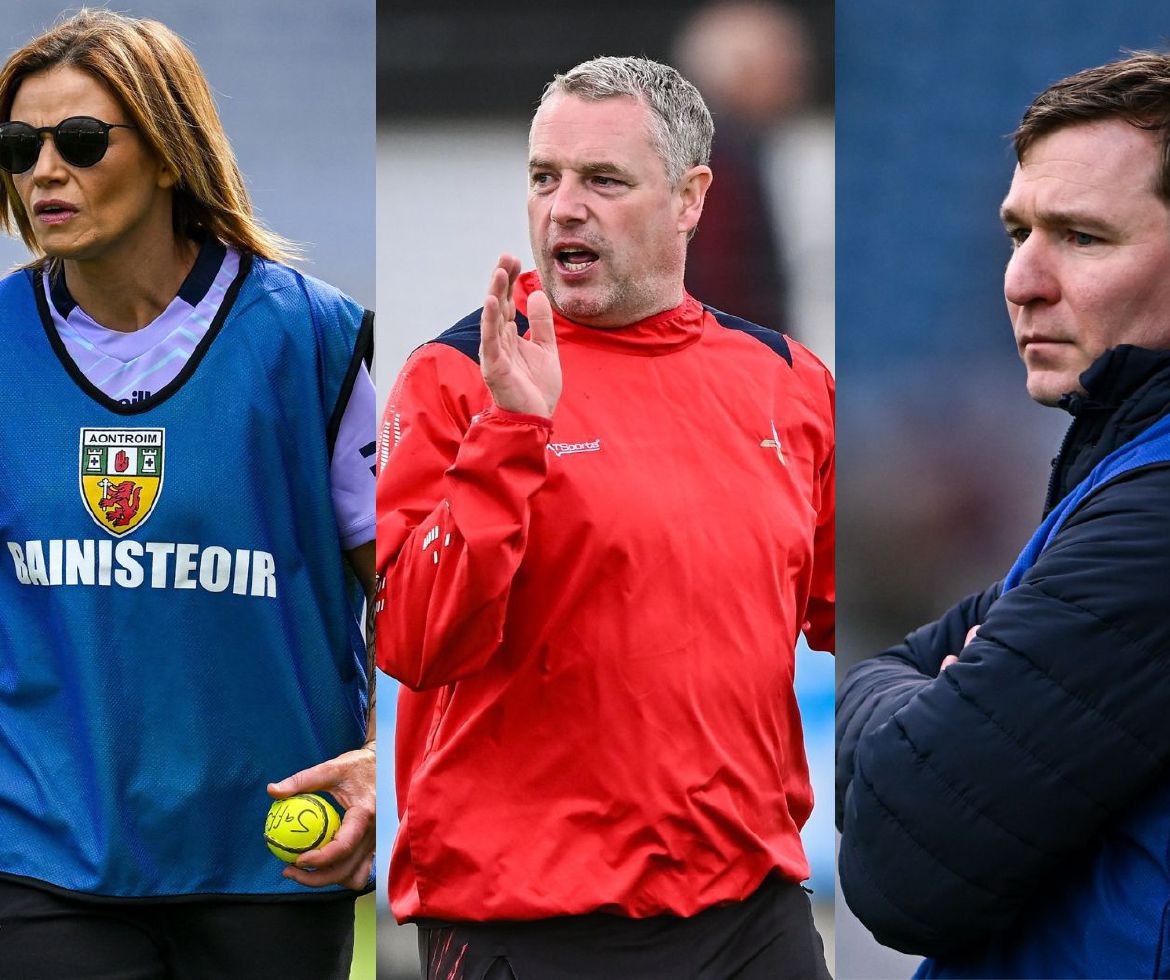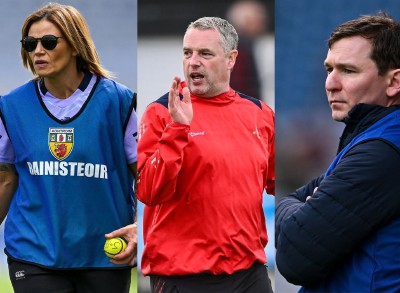By Michael McMullan
NEW Antrim camogie manager Elaine Dowds joined the latest line of club managers appointed at county level with plenty of irons in the fire.
The Sleacht Néill camogie manager will mix regaining the Martin Mulholland Cup with getting her preparation in place for the county season.
It’s the same for Mark Doran who leads Sleacht Néill into this weekend’s championship clash with Bellaghy after bring appointed as the Saffrons’ football manager.
They aren’t on their own. Niall Ó Ceallacháin came in as the Dublin senior hurling manager in the middle of Na Fianna’s run to All-Ireland glory.
New Louth manager Gavin Devlin is also the manager of Magherafelt who are in championship action this weekend.
Armagh coach Conleith Gilligan has joined John McKeever’s management team in Portglenone as they crave a first Antrim title. Luke Barrett is part of Donegal’s management team but is also in with Loughmacrory seniors where manager Marty Boyle is tipped to join Ciarán Meenagh’s Derry management team.
On a different note, Chrissy McKaigue is currently chasing Derry football and hurling titles as a player while also running his eye over players who he’ll oversee at county level under Meenagh. Add in his input with Ardboe’s recent minor success.
Down manager Conor Laverty remains part of Kilcoo’s playing pool – a knock keeping him out of Monday’s win over Bryansford – as they aim to complete an historic seven-in-a-row. Hurling manager Ronan Sheehan also hurls with Newry Shamrocks. Mayo manager Andy Moran made a return to the Ballaghaderreen squad last week.
Back to the main point. Many raise their eyebrows at those being part of county and club management groups, but, with the split season, it’s possible. It’s busy, but it’s possible.
It also comes from both demands for higher standards at club level and from a diminishing pool of people who are actually prepared to invest a considerable chunk of time in management.
There is the elephant in the room about the varying levels of remuneration. Some comes from club funds, others from benefactors, while others are in it for mileage. In some cases, players stump up some of the money.
Virtually all of those involved in management have arrived through a playing career with a bug for sport. Nothing beats playing but preparing teams and pitting oneself against an opponent is part of the grá sport brings.
There will be an element motivated by making a few bob, but players will suss them out quickly. Those who are in demand come with a track record of success.
And, while there are expenses for their time, not everyone is prepared to go all-in on becoming a top-notch manager. Not the way the game is now. Even at club level.
Back in the day, teams trained twice a week, a Tuesday and Thursday, followed by a game at the weekend. If there are players living away, the Thursday became Friday.
Before strength and conditioning, teams did weights in the winter and never lifted a bar ‘til the following winter.
A management team was a manager, a couple of helpers. There would be one clued into getting men fit. There would be a physio on match days.
On championship Sunday, there might be someone rubbing legs.
Analysis was fast-forwarding a game to the key moments. Or even watching it all in one sitting.
Club level now, it a totally different world. A manager will manage. A coach will coach. There will be someone looking after the athletic development. Every club will have an all-singing, all-dancing gym.
They might even have a dedicated person overseeing it all. In forward thinking clubs, someone may be employed to dip into to the underage to ensure correct technique. A goalkeeper coach is a must.
Video clips will be sent to a player’s phone. There may be a login to have a look at everything they’ve been tagged in.
With the array of gear needing hauled around, every setup will have someone looking after everything from kit, balls, bids, water bottles, filling the ice baths.
There will be a recovery day. Strength and conditioning will be carried out on non-pitch days. Some dual clubs are operating dual sessions, with a conditioning coach policing the workload.
Gone are the days when players come back with winter timber that needs shifted. Pints in the pub have been replaced by shooting the breeze in a café. Or in the sauna after a gym session.
Welcome to the world of club teams with serious aspirations of success. Any team with silverware in their sights will have a player-driven culture. It will be all in.
That’s why players demand the best manager they can find, someone who can oversee the moving parts of a management team. And that’s not easy.
A management group chat would leave you dizzy. How many minutes does the physio reckon Johnny has in him? Zonal or man-to-man?
Do we start with 400m runs or will we go for 800? Has anyone the password for the video analysis app? Are we appealing Marty’s red card?
I’m going to watch that game one more time. The goalkeeper has to have a signal somewhere. I’ll have it cracked by Tuesday’s session.
In the height of season, as a manager, it must be absolutely impossible to properly be in the room at work, at home or in family life.
Players will have you summed up in five minutes. They’ll know if you are all in or aren’t up to it, if you’re old school or if you have a handle on the varying patterns of the game.
That’s why clubs are going for the top managers and in many cases it’s someone with inter-county experience.
A lot of the outside manager culture comes from club with cliques and families. Maybe there has been a fall out down the line. Selection favouritism is always thrown in. A stranger can walk out the dressing room door to their own world back home.
Money won’t matter. Success counts. A conversation I had a few years ago with a couple of club fans about local managers versus getting someone in.
The responses were consistent and instant. The only thing that mattered was winning. Any cost was irrelevant.
The day of Tuesday, Thursday and Sunday leading to a chance of success is long, long gone. It’s not coming back.
When you add up the hours put into managing a team, it’s akin to a second job. There is also the impossible task of properly switching off.
Expenses aside, its time spent away from family and any possible career progression.
That’s why the pool is small. With players looking at a manager who will steer how they dedicate their lifetime search for success, with a critical eye, the pool is smaller again.
As long as the split season is in place, there will be double-jobbing. Clubs want the best and the best will always want to challenge themselves.
The top level of GAA is professional in all but name.
Receive quality journalism wherever you are, on any device. Keep up to date from the comfort of your own home with a digital subscription.
Any time | Any place | Anywhere















